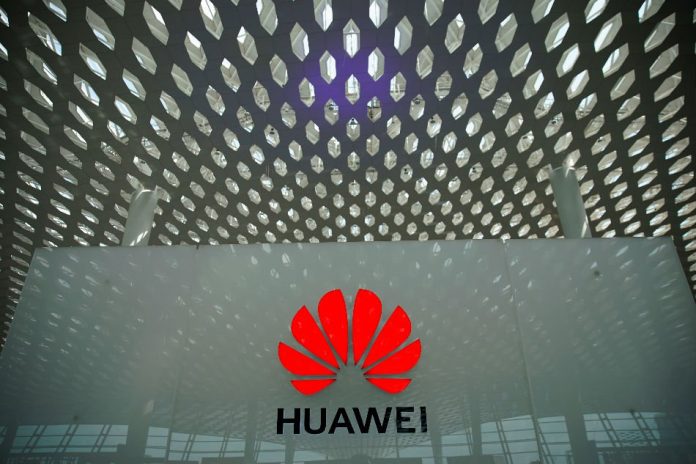
MANILA – Engineer and travel enthusiast Jonald Basilio snapped beach landscapes with his new Huawei smartphone, unfazed by Google’s decision to cut software support because he got a bargain.
From smartphone shoppers seeking powerful cameras to telecommunications companies building 5G networks and cashless payment ecosystems, Filipinos are turning to Chinese technology which promises more features at lower prices compared to competition from the West.
The Philippines is also turning to technology from China as President Rodrigo Duterte seeks closer economic ties between Manila and Beijing, notwithstanding a festering dispute in the South China Sea.
Basilio, 32, bought his P30 handset at full price two weeks after Google said it would suspend business with Shenzhen-based Huawei to comply with a US government directive.
“Wala akong hesitation. Super advanced siya against competitors (I had no hesitations. It is super advanced against competitors),” Basilio told ABS-CBN News. “Maganda yung technology ng mga Chinese at bukod doon, reasonable ‘yung price (Chinese technology is good, at a reasonable price.)
Huawei, the world largest supplier of telecommunications infrastructure and the second biggest smartphone next to Samsung is caught in the crossfire of the US-China trade war. Washington accuses the Shenzhen-based firm of spying for Beijing, which it denies.
Huawei is one of several Chinese brands that are challenging Samsung and Apple in the Philippines. Oppo and Vivo have also been releasing multiple models yearly, hoping to lure price-conscious buyers.
Oppo is in the middle of a “big transition” to the premium segment, with the release of the Reno line, following the Find X from 2018, said its vice president for marketing in the Philippines, Jane Wan.
“Filipinos are becoming more and more critical of what smartphones they purchase. It has gone beyond buying a phone for its brand, but buying it because of its value for money. It’s all about which brand can offer more,” she told ABS-CBN News.
China is pushing for “global tech superiority” by exporting both hardware and software, said Art Samaniego, business tech editor for the Manila Bulletin newspaper.
“While for a long time, China-made products were being looked down as inferior, today, we could see that this is no longer true. Many products from China are not only better than their western counterparts but also more affordable,” he said.
LEADER IN 5G
The Philippines’ dominant carriers, Globe Telecom and PLDT Inc, are both employing Huawei technology in their 5G infrastructure building.
In May, a tweet by PLDT Chairman Manny Pangilinan went viral after he appeared to be testing Huawei 5G on an iPhone.
Globe CEO Ernest Cu told a business forum recently that based on his conversations with Huawei, its network products are “pretty much independent.”
Huawei founder Ren Zhengfei said in February that its technologies were “more advanced” and the world could not afford to ignore the firm. He also denied that the company’s gear was being used as a backdoor for Chinese spies.
China Telecom is also a partner in the Philippines third telco, Mislatel, alongside Davao City-based tycoon Dennis Uy.
SMARTPHONE COUNTRY
Chinese payment giant Alipay, which has 1 billion users, is expanding in the Philippines, hoping to make money services more inclusive for smartphone-savvy Filipinos.
Ant Financial partnered with Globe Telecom and Ayala Corp for Mynt’s scan-to-pay service GCash. Around 2 billion people in emerging economies don’t have formal savings or credit accounts, said Alipay Philippines country manager Steve Shen.
Chinese technologies like Alipay aim to “solve real life problems,” Shen told ABS-CBN News. The Philippines is also one of the world’s fastest-growing markets for financial technology solutions, he said.
“We believe in SE Asia, payment wallets will increasingly become lifestyle platforms like Alipay, and in the future users just need one app for hailing a taxi, booking a hotel, buying movie tickets, paying utility bills and purchasing wealth management products,” he said.
During a visit to Manila 2 years ago, Chinese billionaire Jack Ma said mobile phones “can make everybody equal in technology.”
“The old economy should not fear but it should change immediately,” Ma said. “Please change quickly, it’s not the competitor killing you, it’s the future killing you.”
The US ban is unlikely to stop the spread of Chinese technology as telcos all over the world build their 5G networks with Huawei, said the Manila Bulletin’s Samaniego.
Samaniego said the US has yet to prove that Huawei was aiding Beijing’s spying.
“Chinese technology is here to stay. There will be some setbacks like the US ban but overall, the Chinese technology will be a more practical solution that we need,” he said. (ABS-CBN News)







